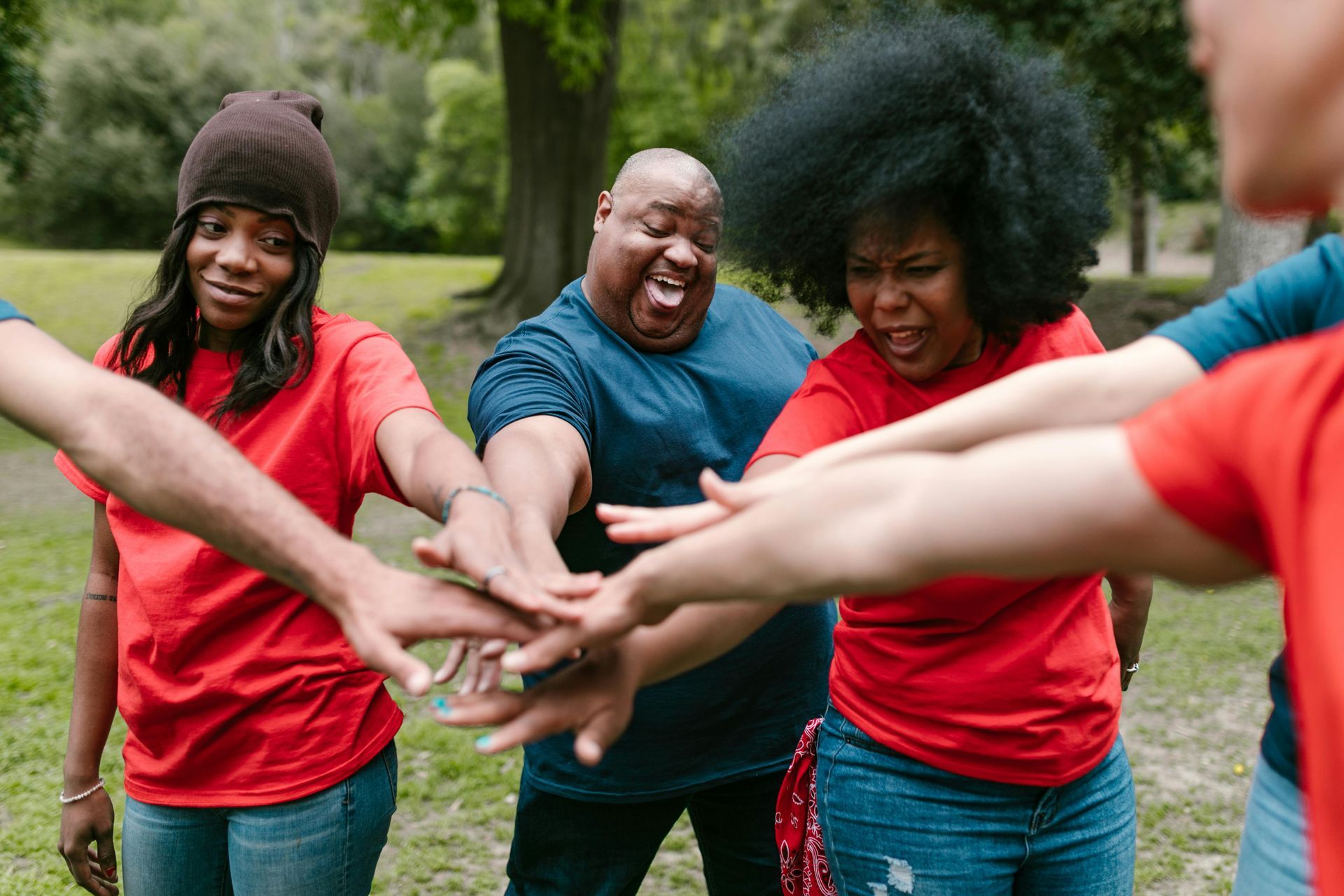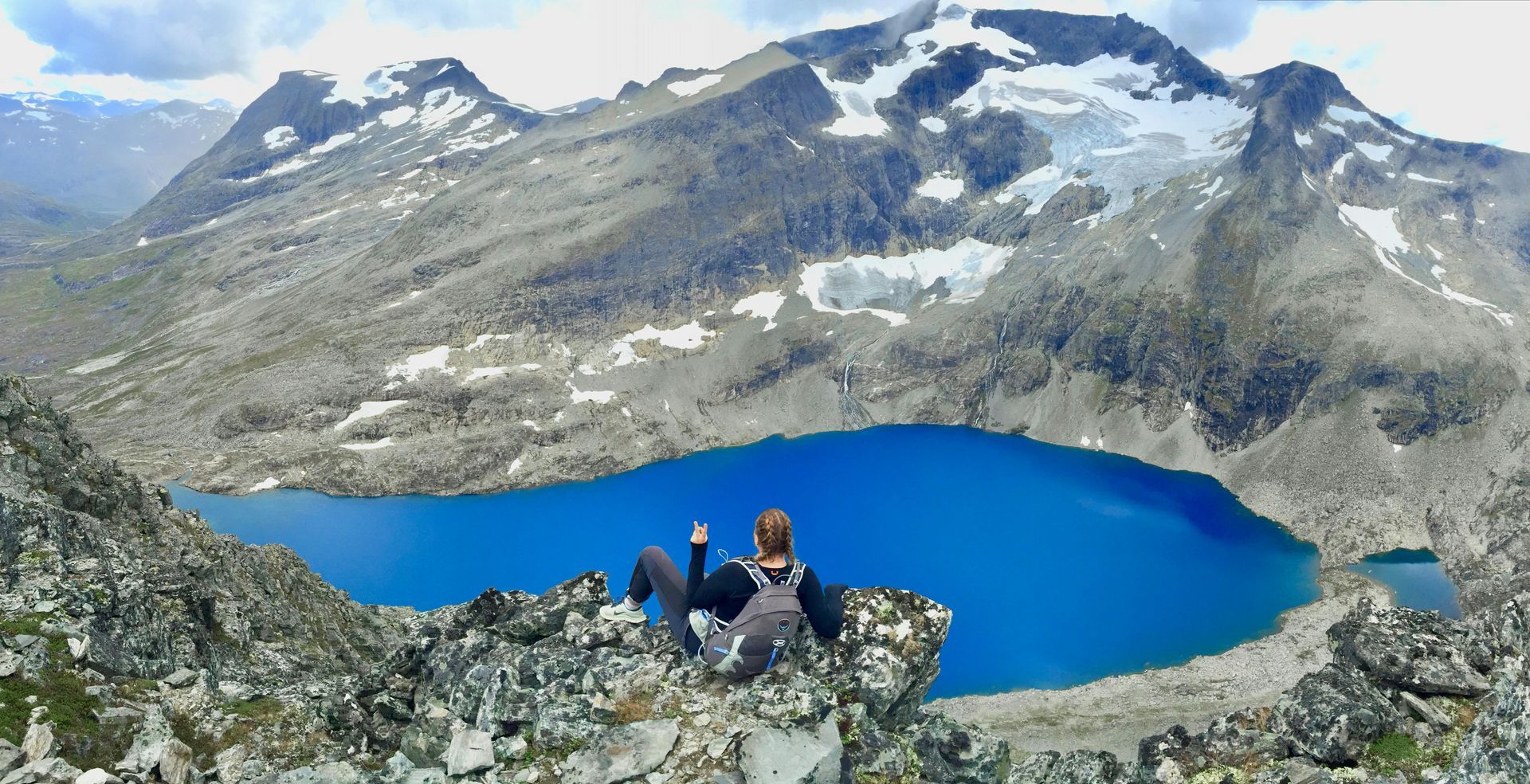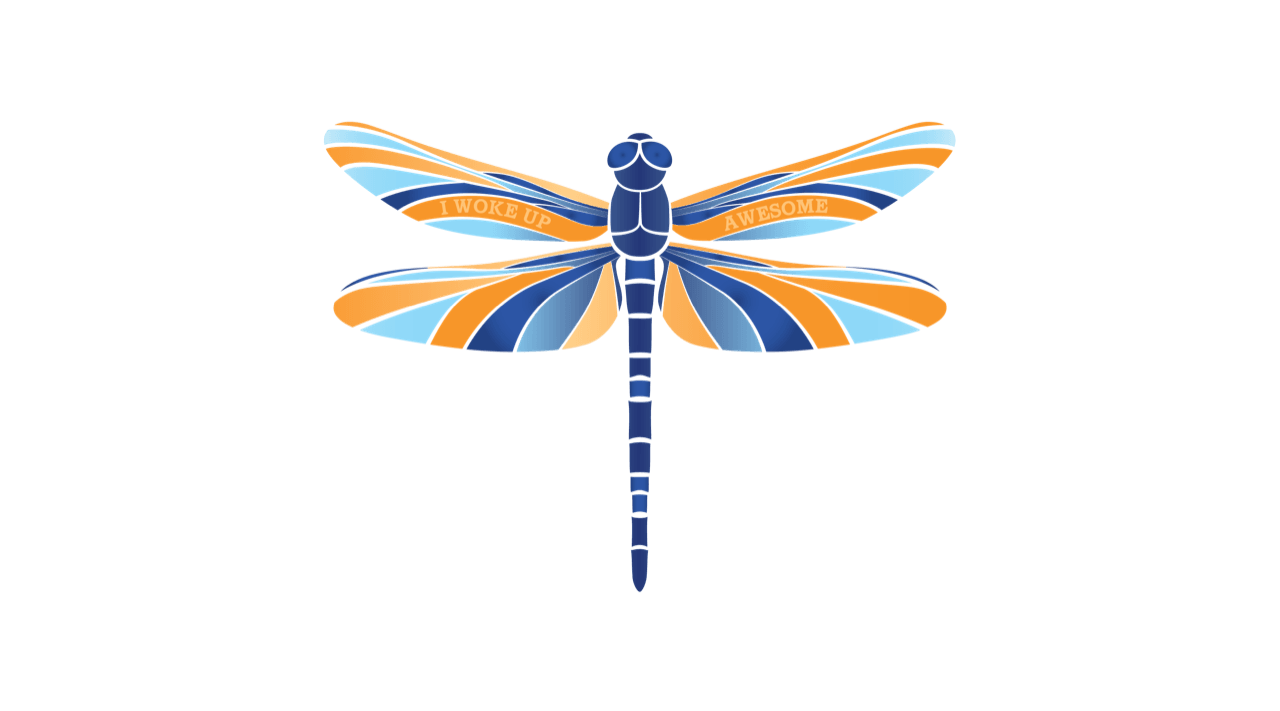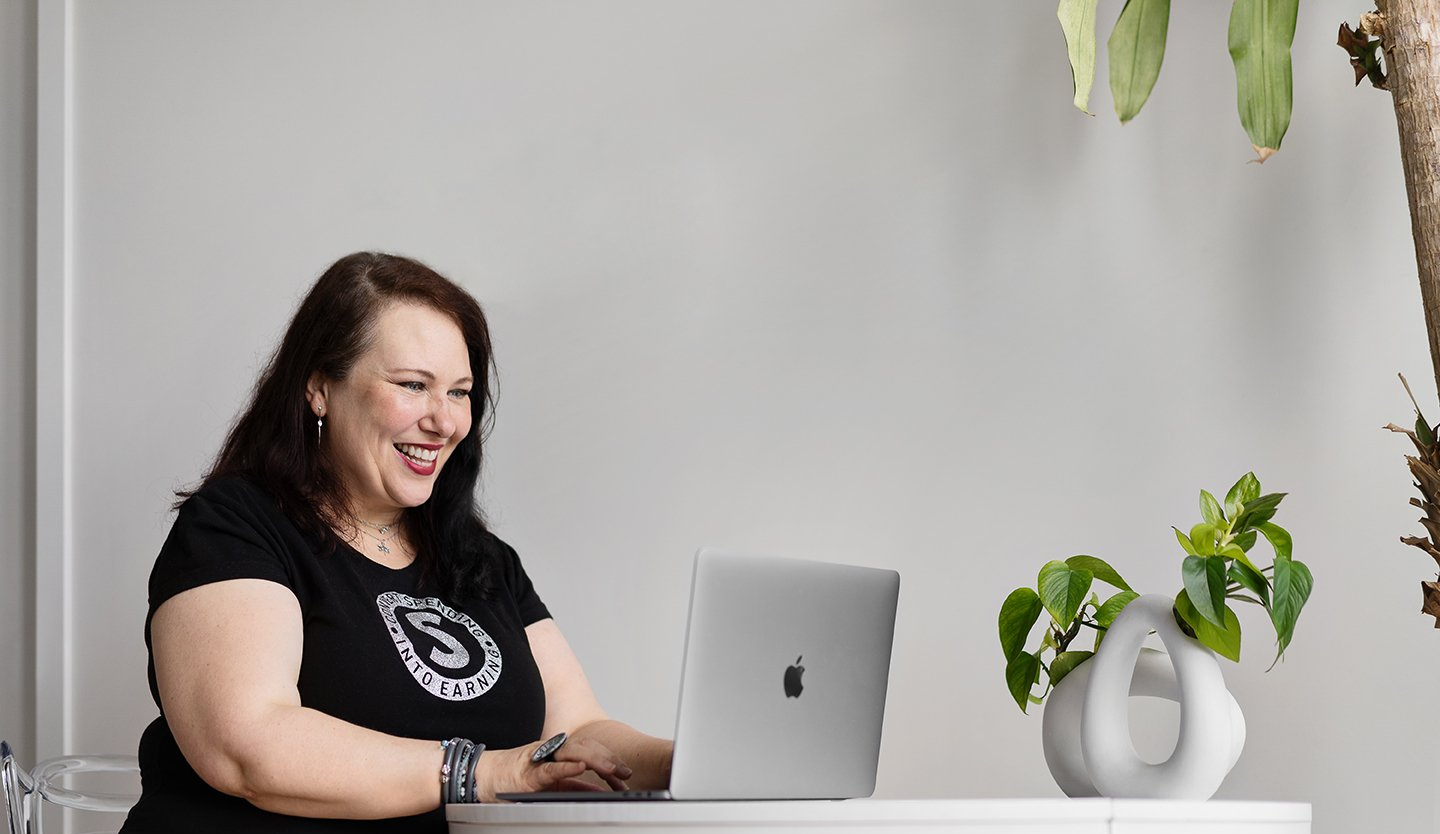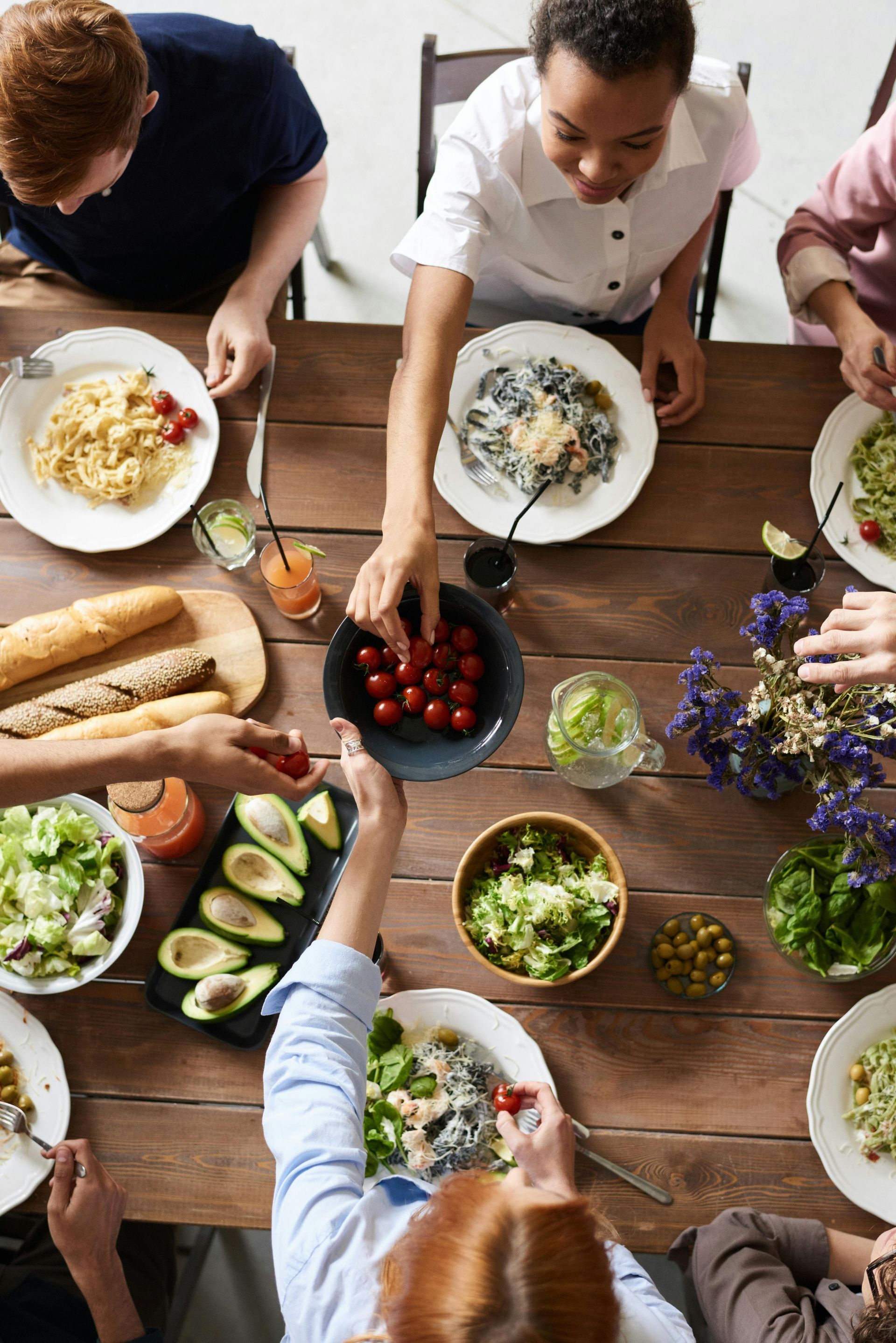Meet D'Ann Smith of Central VA - She Shares the Story Behind HDN GEM
This week we meet D’Ann from a small agricultural community in Central Virginia. D’Ann is a trauma recovery coach at Wounded Healer Coaching, inspired by my own recovery from lifelong struggles with PTSD and a passion for spreading the word that #WeAreDesignedToHeal from past pain and we already have the keys to do it. D’Ann shares her own story and the stories of some of those she has helped. Let’s go meet D’Ann!
Connect with PL8STORY:
Trista's PL8STORY Podcast Links
Nominate a plate - https://www.pl8story.com
Meet your host - https://www.iwokeupawesome.com
Subscribe to Trista's PL8STORY Podcast on Apple Podcast (http://bit.ly/itunespl8story), Google Podcast, Spotify or your favorite podcast app and access all published episodes
HDN GEM
Trista, Host: [00:00:00]Welcome to this week's episode of Trista's PL8STORY (Plate Story) Podcast. I'm Trista Polo from iwokeupawesome.com and I am your host. Each week, we learn the story behind that vanity plate. You know, the one you saw driving down the road... what did it say? What did it mean? Why did they choose it?
Welcome. I am so excited to have this week's featured guest with us. D'Ann Smith is here from the mountains of Virginia and her license plate is the hidden gem, H D N G E M. Hidden gem. I love this. So D'Ann welcome.
D'Ann Smith: Thank you. I'm so excited to be here.
Trista, Host: Yeah, I'm excited to have you, so share a little bit about your license plate story.
What had you choose that as your vanity plate?
D'Ann Smith: Well in my first marriage my, my husband and I had a little bit of a A really good start right before the wedding. We were [00:01:00] getting along, it was really exciting for us and he looked at me one day and he said, you are a hidden gem. And it just was such a powerful thing to have someone say to me I, no one had ever said anything like that to me. And it stuck with me and it's what I held on to during the following years when we had what amounts to a lot of conflict, a lot of misunderstanding. We both really wanted the marriage to work and it really didn't.
Part of the reason was because I was dealing with PTSD, but I was undiagnosed. So nobody had a clue that that was an issue. And it turns out that he was also terrified that he was going to fail. I was his second wife, his first wife left him and blamed him for everything. And he took that burden on and [00:02:00] he was just afraid to be vulnerable because he thought it was his fault that the first marriage failed.
And if I really knew him, the second marriage would fail. So yeah. And. I entered that marriage with the idea that I knew there were things about me that weren't quite the way I wanted them to be. But I figured, you know, marrying my marrying such a wonderful guy was going to fix everything. I just needed to be loved in the right way.
And, and, and I would feel so much better and everything would just be better. And I, I always thought he was a gem of a guy. As it turns out I was codependent. I was looking to him to fix me and he was emotionally unavailable. And you know, that's just a toxic mix. So we ended up divorced. Later I was actually, I was diagnosed with PTSD at the end of that relationship in 1989, when [00:03:00] nobody knew much about what PTSD was.
Or what it, what, how it affects us or what to do about it. So 10 years later I'm married again. And that relationship didn't go any better. As it turns out in that relationship, we had the same issues, but the roles were reversed at this point 10 years later. I'm not willing to be vulnerable and he was codependent.
And it was shortly after I married my second husband that I became disabled by the PTSD. From the time I was diagnosed until then I had kept as a priority, the idea that I didn't want to be disabled by it. I wanted to be contributing financially to my home. And, but I had a crash. I had a major crash and That was the primary thing that [00:04:00] was the bone of contention in my second marriage was the expectations that didn't get met because I was disabled and couldn't work.
After that marriage ended and I was on disability, I really struggled with a sense of value with a sense of purpose. So I began making custom jewelry. I I've always been an artist. I've always enjoyed using different things to make beautiful art. And here I was living alone with very little money and I had some resources that I could use some supplies that I can use to do this. And I realized that have to justify doing something that gave me joy. It didn't have to bring in an income, although it did just not a lot, but that as a human being, I deserve the opportunity to do [00:05:00] things, to make me happy. And that was a new thought for me that I didn't have to justify something that made me happy. And at that point, that, that was such a huge thing that it brought back to mind that thing that my first husband said that I was hidden gem.
So here I am in a clearing in the woods, nobody knows me from Adam's house cat and I felt hidden. Right. So that whole thing just came together. And I decided that I wanted a vanity plate that said hidden gem because every time I got in my car, I would see that plate.
And it would remind me that I had intrinsic value and it connected to the whole jewelry making thing with beautiful gems. And yeah, that's, that's how I ended up with that license plate.
Trista, Host: Well, that's a beautiful story and I really [00:06:00] appreciate you sharing it and. I had a couple of thoughts about what you shared, first of all, you know, you're talking about your relationship with each of your husbands and it's so interesting.
You know, when we get into relationships with, you know, serious relationships like a significant other or family business, or friend relationships, it seems that we bring a lot of our past based conversations, to those relationships. And so your first husband worrying that he was going to mess it up because he was left.
You worrying that you didn't have value in trying to prove that you could be loved and would be loved by having someone else outside of you do that. All of that has to be based on our past. Right. And we're so driven by our past. So I think that the fact that fast forward. You started to [00:07:00] own your own creativity, your own value, your own worth is so beautiful.
And I really acknowledge you for that.
I'd love to dive a little bit into PTSD. It's it's something I've heard many, many times it gets thrown around in conversations, but not being part of the mental health crowd, it's a little lost on me. So I'd love to ask you a little bit about PTSD.
So can you tell us a little about like what can cause PTSD in daily life? Especially since you had it for so long, it didn't realize it.
D'Ann Smith: Yeah. We've learned an awful lot about PTSD, about trauma, about what it is and how it affects us. Since I was diagnosed in 1989 at that point they were still, everybody was still figuring out what it is and what to do about it.
My journey has pretty much reflected the [00:08:00] increase of knowledge and understanding that. The medical community has been going through because, you know, I was in therapy for 30 years. And, and every single one of my therapist was genuinely interested in helping me. So my progress has been very, very slow, very incremental.
Trauma is something that i n daily life in your relationships in your circumstances that that triggers your instinct level responses, the unconscious automatic responses that are programmed into our DNA for survival. So for me, it started out in my childhood. I was born into a family at war with itself.
And so the first trauma experiences I had were Oh [00:09:00] gosh, are the earliest possible moments with all of the conflict and intensity and stuff. That affected me very powerfully and then it never ended. It was crisis after crisis after crisis. And. Then when I got into my young adult years, something happened that is also common to people with trauma.
And that is that I reproduced the circumstances I was familiar with, which meant all of my circumstances, whether it was relationships or whether it was just normal daily life, I unconsciously recreated the same circumstances in my life that I had always had. I did not have any clue what it was like not to live in conflict, not to be upset.
That was my normal. [00:10:00] So this can, this can be for so many different people at so many different things. It's a very individual thing. What actually triggers a trauma response. It can be parents who are struggling to keep a roof over our heads and food on the table. So one of them disappears because they work two jobs or both of them spend more time at work than they do at home.
And so we, we ended up feeling abandoned. We're not getting emotional needs met, and this is all, this is all unconscious for children up to like age eight or nine, you know? So we, we grow out of that period of life and we don't even know we're experiencing this. We don't know that's in our minds.
And for some, unfortunately, it's also about mistreatment. It's about intentional abuse. It's [00:11:00] about being victimized by someone outside the family. It could be any kind of tragedy losing a parent, losing a sibling. It could be moving, changing schools. I changed schools 14 times in 12 years, you know, so it, it really th th the list of how we can be traumatized is endlessly long.
Yeah, I'm really seeing that. Yeah. And it, and it all links back to the individual's original DNA map for what constitutes a survival issue and what doesn't. So it varies so widely because everybody's different. Right. Everybody has different sensitivity levels and they're more sensitive to some things than others.
So we also have big T trauma, which is, you know, like being in a car accident and ending up in a [00:12:00] coma or a fire in the house or being fired from a job, big T traumas, things that, that hit us like a mantra. And we change. And our lives changed from that moment. There are the little T traumas then we don't, you know, usually think of as traumas, but they affect us powerfully because that's just who we are.
We're sensitive to that thing. But the bottom line is I, I honestly believe that trauma is normal human experience. It's just life. Nobody gets into adulthood without some kind of trauma in their childhood. Nobody gets to be at the end of their life without having experienced some kind of trauma. It, yeah, it's just life
Trista, Host: Let me ask you this. So you went through a lot, you realized and were diagnosed. What did you do to overcome it? Because clearly, you know, you went into being able to really start seeing your [00:13:00] worth dealing with the diagnosis growing from there. How did you accomplish that?
D'Ann Smith: Well, the first thing I did was I went into therapy and so I was in therapy off and on for, for 30 years.
Of course there wasn't much in the way of expertise when I first started therapy. But I was excited because having that diagnosis and being able to read books and ask questions, gave me an understanding of what I was dealing with and why which had been a mystery up until that point up until that point.
I just thought I was an alien that I was different from the rest of the human race. So that was, that was a point of hope for me. And I just dug in. I'm like, well, if, if we know what this is, there's gotta be some way to fix it. Right. And I just, [00:14:00] I just, I sat, I remember my first session after my first hospitalization, right before I left my husband, my first husband and I, and I I looked at my therapist and I said, you know, I finally figured out that life is going to hurt no matter what you do, there are just some things that we can't prevent. So if, if life is going to hurt anyways, it makes more sense to me to invest my pain in making progress than it does to invest my pain in preventing change. So I'm okay with going into things I don't know and I've never experienced before for the sake of healing. Instead of trying so hard to just stay with what I need. And, and that [00:15:00] has defined my journey. So being in therapy helped because it made me learn how to be more. Self-aware how to be able to ask myself questions. And over that long period of time, I actually ended up with two super skillful experienced trauma therapists. So 20 of that 30 years was with two really, really magnificent therapists who were very helpful.
I was diagnosed in 1989. I didn't become disabled until 2002. Because every time I realized I was struggling with something, nobody else did, I came up with a way to compensate for it. So instead of trying to, to work in an office job, which had discovered from experience didn't fit me, I became a waitress and I enjoyed the interaction with the clients, but it also gave me flexibility that I needed when [00:16:00] my symptoms were overwhelming and I couldn't work, you know? So things like that just kept me going.
And that was, that's a journey. That's a journey until, and then eventually I ended up recently, I ended up learning some fabulous new information. New science, new technology has given us a whole magnitude of difference in what we understand and what we know about trauma and how the human mind works, how the, how it affects the human body.
And so now I have tools that have given me a dramatic level of improvement that surpassed in just a few weeks, what I was able to accomplish in 30 years. So now I'm a trauma recovery coach.
Trista, Host: That's awesome. So you've taken your own experience and you're now bringing it to [00:17:00] other people. And you had shared this with me during our pre interview that you started working with a specific process that a coach brought to you and that it allowed you in six months to do something that you had struggled to do for 30 years, you mentioned something called neuro divergent. Can you share a little bit about what's different real briefly from this new process than what you were went through in therapy?
D'Ann Smith: The one thing that trauma does is it alters our brain and our neurology.
The chemical processes, the chemical production that we create when we are experiencing trauma, literally physically alters us. And I brought up neuro neuro divergent because there are a great many people talking about being neurodivergent because of add [00:18:00] ADHD that kind of thing. So we, we already knew that people with those diagnosis had a different physiology in their neurological system and brain, but the truth is that trauma does the same thing.
So depending on how much trauma you're dealing with and how long it existed in your life the changes may be small. The changes may be huge for me. I I'm dealing with what's called complex traumas, lifelong trauma that started in early childhood, not everybody's trauma is like that. So I know that I am permanently, physically altered from my original DNA neurological blueprint.
But the thing that we know now is that the brain is incredibly elastic. It's. Adaptive, it can grow new cells and [00:19:00] new neural pathways and the the tools that I acquired six months ago used that knowledge to allow me to connect with myself at a level and in a way had never been able to do so before to actually look at the core roots of my trauma and actually heal those to pull the electric emotional content that kept them alive and intrusive and disruptive and pull that energy out of it so that they just became memories and they stopped intruding into my life and I stopped grumbling over them. So that is how in just a few weeks I was able to accomplish so much growth and so much healing.
Trista, Host: That's awesome. And you have clients that have had some successes as well. Can you share a [00:20:00] story or two from the clients you've been working with as a coach?
D'Ann Smith: Sure. I had one client. His mother died decades ago and every holiday he went into deep depression.
And it has relationship with his mom was really a love, hate relationship. He was very attached to her and there was a lot of conflict in that relationship. And it just was like, she was always with him. She was in everything he experienced and it was really, really difficult for him. And he got to the point where he was just not wanting to be miserable when everybody else was enjoying a holiday.
Hey, and he, wanted it to stop interfering in his perceptions and interactions with other people. So he went through the process with me and in one session, just one session I could see, I could visibly see [00:21:00] on him and his demeanor and his expression and carriage, the massive shift he was able to experience.
He was able to let go of decades of unresolved grief. He was able to make peace with his perceptions of his relationship with his mom and his emotions about her, about what their relationship was like as well as about losing her. And he was just... he was just transformed in one session. Now, most people need more than one session to, to really to really deal with the scope of whatever trauma is doing in their lives.
But this one session was amazingly transformative. It was awesome
Trista, Host: seeing opportunity. And like you said, I'm sure most people need a few sessions, especially if it's a very big trauma or it's a longstanding. When you [00:22:00] work with someone is it sort of like therapy where it's a lifelong commitment or can you handle things in a specific amount of time? So that it's finite.
Yeah. So the cool thing about what I'm doing is that these tools are not something I use on my clients. My, I teach the tools to my clients. And so in a session they're actually doing all the work themselves. I'm not saying anything to them. And it'sD'Ann Smith: what I do is I I, my program is like eight to 12 weeks at this point.
And there's of course there's a little bit of getting to know each other, a little bit of coaching which is sort of like, you know, the therapy relationship. But the, the goal of this program is to teach these tools to my clients and have them learn them so well that they become habits and it changes the, it [00:23:00] changes your thought habits.
It changes the way you perceive things. It changes the way you respond to things. It changes the way you talk to yourself. We're unlearning the unhealthy unconscious habits that we bring into the situation and replacing them with the ones that teach us how to heal, teach us how to maintain that healing and teach us how to prevent future events from becoming unresolved trauma.
So we're healing old trauma and we're making, creating and maintaining a state of healing.
Trista, Host: That's awesome.
D'Ann Smith: This is about how the human mind and body works work together and how to use that knowledge to engage the, the self-healing design that's part of our DNA. We're designed physically to heal. When we cooperate with that [00:24:00] process, our body does the work. The same thing is true of the mind when we understand how that self-healing process works. And we cooperate with it. Her, our unconscious mind does the work.
Trista, Host: Yeah, that's amazing.
And I think you're right. You know, there are ways that our brain and our body work, we're not even really understanding. And it sounds like you've been able to harness what already is happening and what we're capable of to create healing, which is so powerful.
This is soD'Ann Smith: you know, this was such an exciting thing for me after 30 years to just invest a few weeks and learning tools and to make a quantum leap.
And I hate to use the word quantum because everybody's been overusing that word, but this is literally a geometric expansion of health in just a few weeks compared to the 30 years in therapy. And [00:25:00] the 30 years of therapy gave me value. But it doesn't have to take it doesn't have to take years to deal with trauma anymore.
It doesn't have to take decades. We have the knowledge and tools now that allow us to do our own healing, to take responsibility for our own mental and emotional health and maintain it. We just need to learn how to use the keys that we already have in ourselves. Hmm,
Trista, Host: that's great. And I love that that's a perfect place to kind of put a button on this conversation because you're absolutely right.
And I can hear your passion when you started to talk about like what you can really see as possible. And I'm going to use quantum leap. I'm not, I think that's a perfect way to put it because it's, you know, they there's a saying from Niels Bohr, it's something like, if you think you understand quantum physics, then you don't get it at all.
It's [00:26:00] like, when you're confused by it, that's when you're starting to get the tip of the iceberg. That's not the quote, but that's the kind of meaning behind the quote. And it's exactly what you're talking about. Like, we don't even understand what we're capable of. So I love that you have tools to help people harness that capability.
Yeah. Yeah.
It's, it's why I can wake up every morning. Excited. I get to watch. I mean, transformation is another word that's just been overused so much lately, but I get to literally watch someone change in a one hour session. Yeah, that's beautiful. It's like watching a Rose open up in fast-forward film, right.
D'Ann Smith: Or, or
Trista, Host: hold on, wait, you're ready. Or it's like finding a rock in the ground and polishing it up and exposing the hidden gem inside of people. Exactly. Look what I just did there. Oh my [00:27:00] gosh. That's amazing. That's awesome. Well, we're going to have links to your website and your social media and everything.
So people can connect with you if they'd like to get more information. Now I always like to turn the tables before we wrap up and see if you have a question for me. Is there something you'd like to ask me?
D'Ann Smith: What is it about podcasting that keeps you excited to keep doing it?
Trista, Host: That's a great question, actually, because there is this, I don't know if this is the official term for it, but there's definitely something that I'll call podcasting fatigue. Right? You get this idea, you say, Oh my gosh, this is going to be so great.
And then after all the shininess wears off, there's still a weekly episode in front of you. And so when people start podcasts - there are thousands of podcasts out there that have like [00:28:00] five episodes and then they are abandoned because of the shininess wore off.
I would say for me, I've, this is my third podcast that I've been a host for. And then I actually freelanced a little bit as a podcast, host an engineer because I wanted to hone my skills. This was years ago. But I really love the idea of connecting with other people. I have a curiosity about others. Like what's underneath the water of your iceberg. What makes you tick? What got you, where you are today?
What lessons have you used to level up your life? What challenges have you had? Because you know, the gem thing is such a perfect analogy. We're like multifaceted gemstones. And there's so many different things about each other we never know. I have people I've worked with for years and then I'll sit down and get to know them over [00:29:00] dinner or whatever, and next thing I know I'm learning things about them I never would've guessed things that inform who they are today. Fascinating things. And I think, yeah, we're all very fascinating. Even when we think, Oh, it's just me. I have nothing special to offer. Guess what? As an individual human being, you have glorious, powerful specialness inside of you.
And even if I can just shine a little tiny bit of light on that then I, I love the opportunity to do that. So that's what keeps me from getting podcaster fatigue.
There are so many podcasts, especially over the pandemic that got started. And if people were thinking of starting a podcast, I think the biggest thing about it is find something that you're passionate about talking about enough that when the shininess wears off, you still want to have conversations about that topic.
Yes. Yes. And, and for [00:30:00] me, the pandemic experience has beenD'Ann Smith: full of opportunity because in a way that's that's that's not happened in our lifetimes, everyone has experienced trauma and it's obvious to everyone. It's not a hidden thing. It's not the normal, everybody knows they're going through trauma.
And so those of us who have something to contribute to help people deal with it, we are needed more than ever. Absolutely. And people are open more than ever to actually looking for that help. Beautiful.
I love what you do. I love what you do. It's fascinating to me and I love how it ties those stories into our vanity plates because what our vanity plates do? They tell the world how we see ourselves?
Trista, Host: Yes,
D'Ann Smith: absolutely. I just think that's, I think that's exciting.
Trista, Host: Awesome. Thank you. And I love what you're doing. I [00:31:00] think that you're giving people a real access to their power, which I'm also very committed to so good on you for the work you're doing.
Thank you for joining us for this week's episode of Trista's PL8STORY podcast. Please subscribe to Trista's PL8STORY podcast to get the story behind all those vanity plates, driving with you on the road. And if you would like to nominate the owner of a license plate, including you... Or visit any of our partners and sponsors come and see us www.pl8story.com. That's P L number eight story.com and give us the details.
If you enjoyed this episode, please drop a review and give us a share. I'm Trista Polo wishing you well on the road to your next adventure.
I Woke Up Awesome Blog

